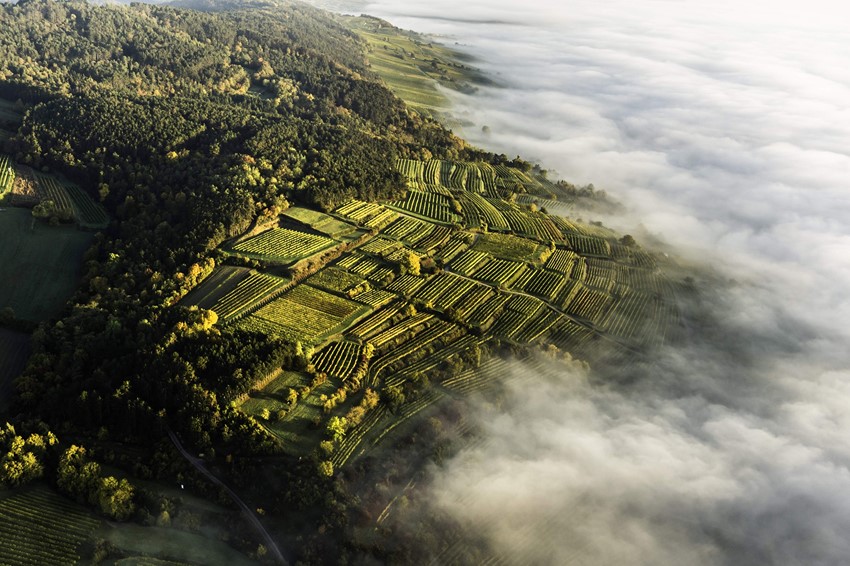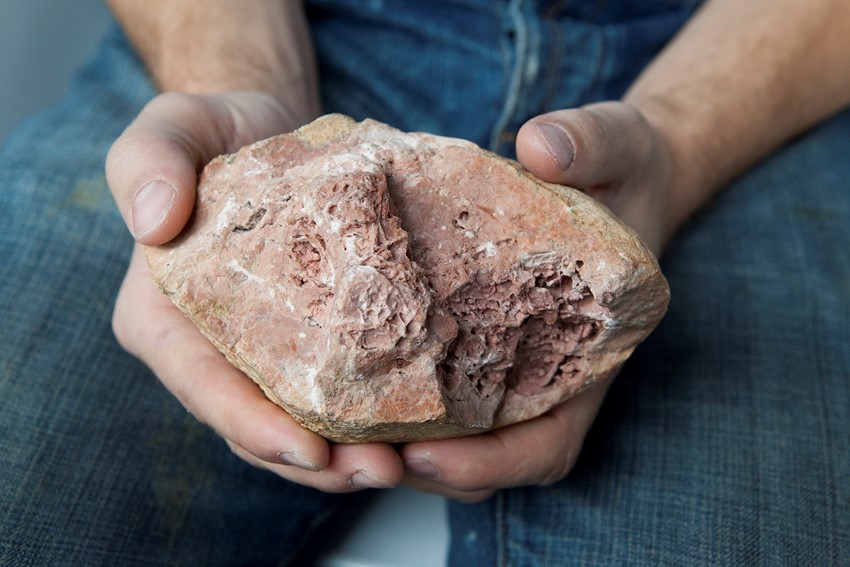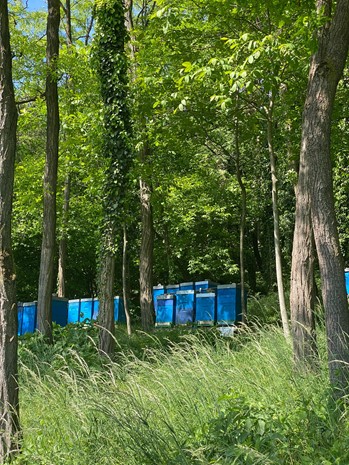Markus Huber is a force to be reckoned with. Not only is he one of the most acclaimed new generation of winemakers in Austria, he is also tackling the issues of climate change and need for adaptation with passion, perseverance, and utmost respect.
For Markus, the soil is what it is all about – from creating a unique terroir for the vines, to being the most important element when it comes to sustainability.
“Austria’s Burgundy”
Born into a small wine-growing family, Markus is a 10th generation farmer who has turned his eponymous business into one of Austria’s leading exporters of premium wines. Known for pushing the boundaries and improving operations at his winery, Markus’ focus is on the strengths of the region and the unique soil types in which his vines grow, ensuring that year on year distinctive, top-quality wines are produced.
Farming in the Traisental, nestled in an idyllic location between the Alps and the Danube River, the Huber family benefits from the coolest climate in all of Austria, a premium location for white wines with a unique, mineral-driven style.

Geographically located at the intersection of Pannonian and continental climates, the Traisental experiences cool winds from the nearby Alps, mixing with warm air currents from the Danube valley. This leads to extreme differences between day and night temperatures, which favours the aroma development of the berries.
“The Traisental is the only wine-growing region in Lower Austria where limestone soils dominate,” Markus explains. “The vines are predominantly planted on – often tiny – terraces, with limestone conglomerates forming the basis of the best sites in the Traisental.”
Erste Lage
On these soils, the root systems are required to penetrate deeply to access water, leading to stronger vines and lower yields. “This unique soil and climate are reflected in the finesse of the wines,” Markus explains. “All of our Erste Lage wines are grown on these compact limestone soils, creating tight, focused wines with great salinity.”

Red limestone, typical of the region
One of their top wines, the Grüner Veltliner Alte Setzen Erste Lage, is the oldest parcel in the area. “The vineyard was planted in 1951, by my grandfather, on limestone soil with marl on top. The wine is fermented in 2,000L casks, and has a distinct minerality and compact body, with herbal spice, ripe fruit and a marvellous balance and ripe acidity.”
But don’t just take Markus’ word for it. This wine has previously scored 92 points in Falstaff and 95 points with James Suckling. The 2019 Alte Setzen is currently available to order online, but watch this space for more Erste Lage parcels coming soon!
Sustainability – a personal conviction
With deep respect for the land they are custodians of, the family’s highest priority is to work ecologically, using natural resources sustainably, from vine to bottle. The vineyards are farmed biodynamically, and the vineyards and wines are certified organic.

“Based on a holistic, appreciative understanding of nature, as well as creativity and openness for new things, we, as a certified organic winery, try to produce wines that reflect their origin in an unadulterated way,” Markus explains.
But it’s about so much more than certifications and tick boxes. For Markus, this is a personal conviction and even his own home is operated carbon neutrally. “Regular agriculture creates a very negative cycle – it is not the right way. We need to all be more sustainable. I realised that my main capital is the soil; it is the key to a healthy plant and healthy grapes,” he says.
Driven by a love of experimentation and detail, they rely on alliances to break new ground in organic and biodynamic viticulture, “improving tomorrow’s world a little bit,” Markus says. “For us, this means the use of regenerative probiotic bacteria cultures for soil health, the cultivation of symbiotic vine-holding herbs and medicinal plants in and around the vineyard, as well as the use of herbal extracts to strengthen the resistance of the vines.”
Harvest time
With the harvest currently under way across Europe, Markus gave us a quick update…
“2021 was a very, very good year – a classical one. It was cool and the picking started late, around 10 Oct,” he says. “We had a dry autumn, with cool nights, allowing flavours to mature slowly and beautifully. The wines are fresh, bright, powerful and beautiful.”
In the run up to the 2022 harvest, they’ve had good rainfall and, unlike most of Europe, didn’t suffer too much from the heatwaves. “2022 will be a similar year to 2021. Cool nights and warm days lead to perfectly ripe grapes with bright freshness and very good aromatics,” Markus says. “Another ‘classical’ vintage from the Traisental.”
Keep an eye on our social media channels for more harvest updates and parcel releases of their other Erste Lages.




